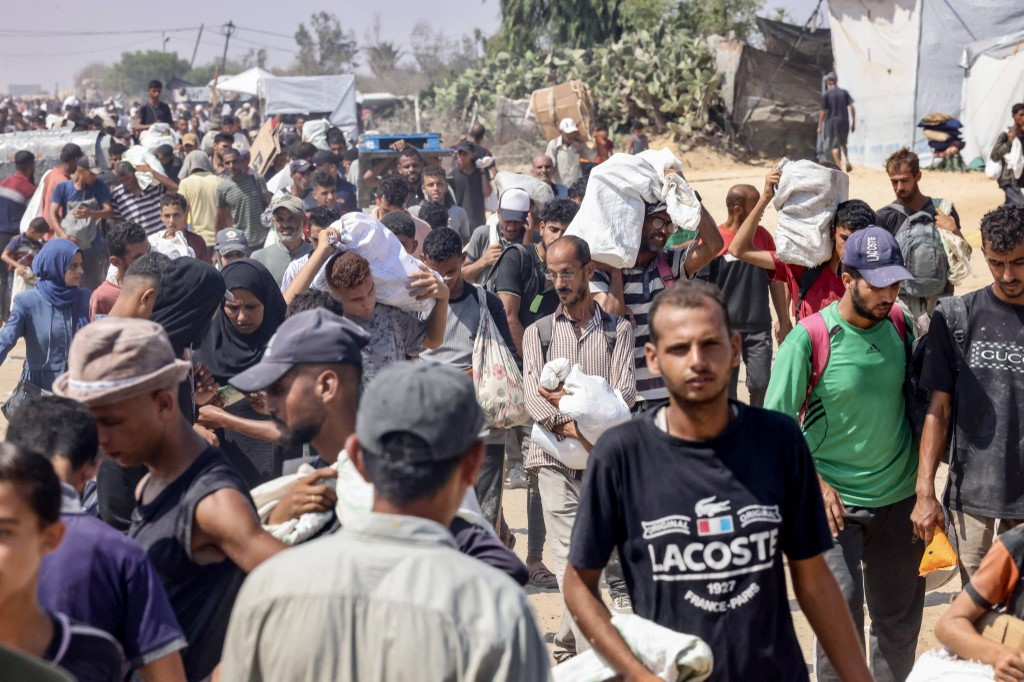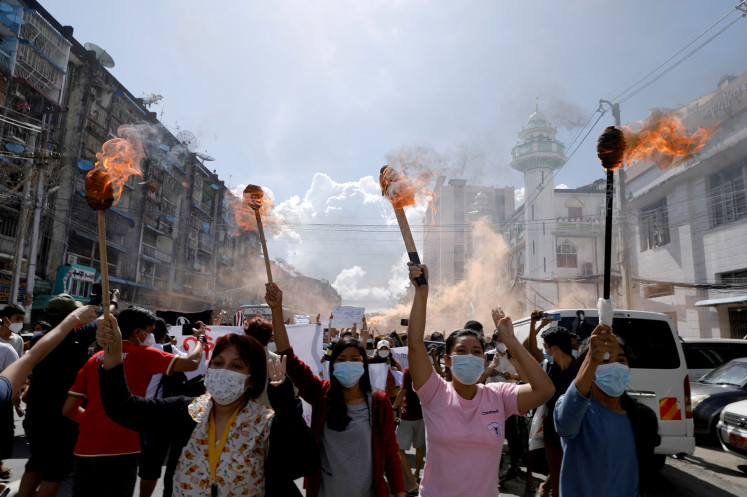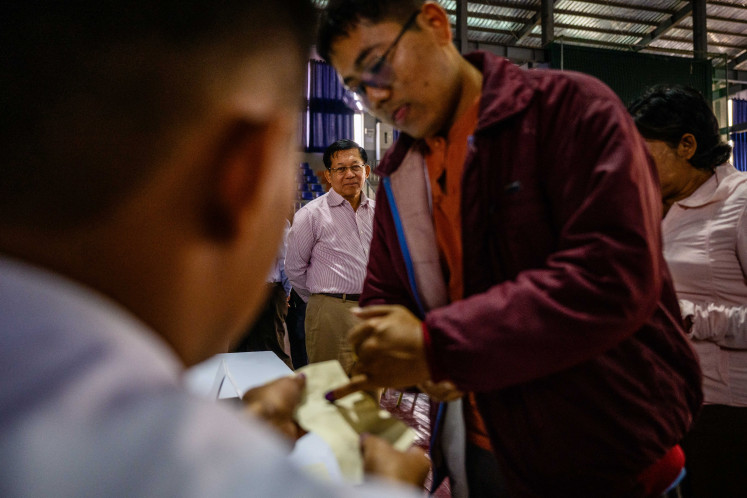Popular Reads
Top Results
Can't find what you're looking for?
View all search resultsPopular Reads
Top Results
Can't find what you're looking for?
View all search results'Famine now unfolding in Gaza': UN-backed monitor
The Integrated Food Security Phase Classification Initiative (IPC) said that air drops over Gaza will not be enough to avert the "humanitarian catastrophe."
Change text size
Gift Premium Articles
to Anyone
F
amine is "now unfolding" in Gaza, with thousands of children malnourished and hunger-related deaths on the rise among the youngest, a UN-backed monitor warned on Tuesday.
The Integrated Food Security Phase Classification Initiative (IPC) said that air drops over Gaza will not be enough to avert the "humanitarian catastrophe."
"The worst-case scenario of famine is now unfolding in the Gaza Strip," said the UN-backed group of organizations, used as a monitor to gauge malnutrition.
"Immediate, unimpeded" humanitarian access into Gaza was the only way to stop rapidly rising "starvation and death", it said.
The IPC issued their warning "alert" after days of aid groups sounding the alarm over hunger-related deaths in Gaza.
Israel imposed a total blockade on Gaza on March 2 after ceasefire talks broke down. In late May, it began allowing a small trickle of aid to resume, amid warnings of a wave of starvation.
The IPC said its latest data shows that "famine thresholds" have been reached in "most of the Gaza Strip".
Hunger-related deaths of young children, it said, were rising.
"Over 20,000 children have been admitted for treatment for acute malnutrition between April and mid-July, with more than 3,000 severely malnourished."
Children under the age of five were dying of hunger, "with at least 16 reported deaths since 17 July", IPC said.
"Mounting evidence shows that widespread starvation, malnutrition, and disease are driving a rise in hunger-related deaths," it said Tuesday.
The group warned that "unimpeded lifesaving humanitarian access" was the only way to stop the growing number of deaths.
"Failure to act now will result in widespread death in much of the Strip," it said.
Over the weekend Israel declared a "tactical pause" in army operations in parts of Gaza, saying more than 120 truckloads of food were allowed in, with some countries -- such as Jordan and the UAE -- dropping food into the besieged territory.
But besides posing a risk to civilians, air drops will be insufficient to "reverse the humanitarian catastrophe", warned the IPC.
Delivering food by road is "more effective, safer and faster", it wrote, also warning that the most vulnerable suffering from acute malnutrition -- including children -- "need access to consistent life-saving treatment" in order to recover.
"Without immediate action, starvation and death will continue to spread rapidly and relentlessly," it warned.
The IPC alert did not amount to a new famine classification, it said, but was intended to draw attention to the crisis based on "the latest available evidence" through July 25.
A more thorough so-called "advisory", in which the group issues its classifications, is underway and will be published as soon as possible, it said.
In May, the IPC said there was a "risk of famine" in Gaza.
The UN-backed group of organizations and institutions issues an internationally-agreed definition for famine that is used to gauge the level of acute malnutrition in countries.










